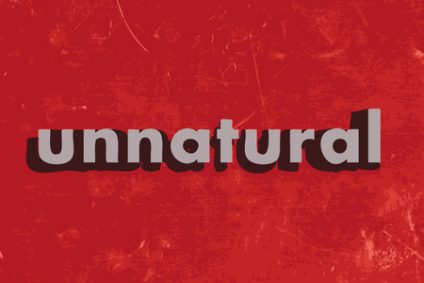
The biggest irony of natural parenting is that it is entirely unnatural.
As Petra Buskins explains in The Impossibility of “Natural Parenting for Modern Mothers:
[pullquote align=”right” cite=”” link=”” color=”” class=”” size=””]Natural parenting is not a return to nature, but a return to “traditional” values.[/pullquote]
Numerous histories of “the family” show us that intensive, romanticized caregiving carried out by biological mothers in the private sphere is an “invention of modern economic and political arrangements. It was only with the division of public and private and the shift from a domestic to an industrial economy, that mothers were cordoned off to a special occupation called “Motherhood.” Prior to this, women mothered with a community of men, women, and children and did so in and around a myriad of other subsistence oriented tasks…
In other words, natural parenting harks back not to nature, but to Victorian values:
…[W]ith the social changes brought about by the creation of a public sphere (populated by male citizens) together with industrialization and a free-market economy, women in western societies … were sequestered to the private sphere as glorified mothers …
This period of extreme romanticization of the role of mothers was followed by a period of rationalization. It was during this period that motherhood became regimented and “efficient.” Those were the years of rigid infant schedules, veneration of bottle feeding, and the glorification of parental authority. What we think of as “natural parenting” arose in response. Buskens quotes Diane Eyer writing in Mother-Infant Bonding: A Scientific Fiction:
The infant of the 1920s and 1930s was known to be in need of discipline. He should not be picked up everytime he cried or he would become spoiled and would not learn the important habits of living according to a strict and efficient schedule… In the 1940s and 1950 sthe infant was known to be in need of constant gratification. He should be picked up every time he cried or he would become frustrated and develop a neurotic personality…. In the 1970s, this idealized dyad [of mother and child] was threatened with dissolution.. ..Bonding was a kind of social medication for these problems at the same time that it seemed a means to humanize birth. It was eagerly purchasedby parent consumers who wished to preserve at least some remnant of power of the early maternal relationship as a kind of insurance against the unknown.
As Buskens notes:
The emphasis on maternal nurture as an antithesis to the dominant values of rational efficiency and liberal individualism,therefore, provides an invisible subtext of romantic opposition to western modernity. In other words, contained within this radical critique is a thinly veiled conservatism concerning the “natural” place of women …
So natural parenting is not a return to nature, but rather a return to the romanticized Victorian view that women should be immured within the home. Hence it is not a coincidence that natural parenting precludes women working outside the home; it is its central feature and raison d’être.
Buskens identifies William Sears as a major proponent of this ahistorical view of mothering designed to promote Victorian (i.e. “traditional”) values. Her critique of Sears and attachment parenting is both incisive and devastating:
Sears is specifically opposed to mother’s working outside the home and encourages 24-hour embodied care … [amounting] to an utterly exhausting regime of caregiving and patience for the mother. Her role as isolated caregiver precludes her participation in both paid work and socializing but we are assured this is a “natural” and “traditional” state of affairs. One wonders how such a blatant ignorance of history could go unnoticed by both Sears and his readers, but we have only to remember the emotional power of the word “mother.” In the name of this word, Sears manages to reconstruct the past and foreclose much of the future for new mothers.
Buskens takes advocates of attachment parenting to task for presenting their personal views as natural when they are anything but.
Under the emotional power of “instinct,” in other words, the experts have managed to obscure their own status as scientists rationally procuring more and more knowledge on the categories of motherhood, infancy, and childhood. This is classic enlightenment thinking: the improvement of the human condition through the use of scientific reason, yet it has managed, cleverly indeed, to fashion itself as a powerful critique of that very paradigm.
The reality is that natural parenting isn’t about children; it’s about women and their place in the world. Natural parenting is a rhetorical strategy to promote Victorian values.
As such, natural parenting isn’t ancient and it isn’t natural. It’s thoroughly modern effort to immure women in the home and foreclose the most of their future under the guise of what “best” for children.

